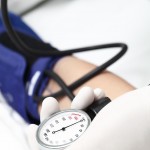
A report by NPR says the findings are promising because high blood pressure has some well-established risks, including a potentially doubled risk of heart attack or stroke.
Some blood pressure treatments may carry possible health risks as well. For example, two clinical drug trials have prompted a U.S. Food and Drug Administration investigation into whether the blood pressure drug Benicar increases the risk of heart-related deaths. A recent Mayo Clinic report has also linked Benicar to stomach problems including chronic diarrhea, vomiting, intestinal inflammation and weight loss.
A press release from Brigham and Women’s Hospital says the study focused on African Americans, who have a 40 percent greater likelihood of suffering high blood pressure than other American ethnic groups.
During the study, 250 African-American adult voluntary research participants were divided into four groups. Three of the groups received a three-month regimen of daily Vitamin D supplements. The fourth group received a placebo.
Participants in the placebo group experienced a rise in systolic blood pressure, the press release says. But participants in the Vitamin D supplement group had a systolic blood pressure drop of one to four points, with those getting the highest dose benefiting the most.
According to the press release, systolic blood pressure is the top number in a blood pressure reading and measures the pressure in the arteries when the heart beats.
You should consult with a doctor if you have any ongoing symptoms or health concerns, and before making any changes in medication. You should also consult with a lawyer if you have injuries connected with Benicar.
See the NPR story here:
See the Brigham and Women’s Hospital press release here:
